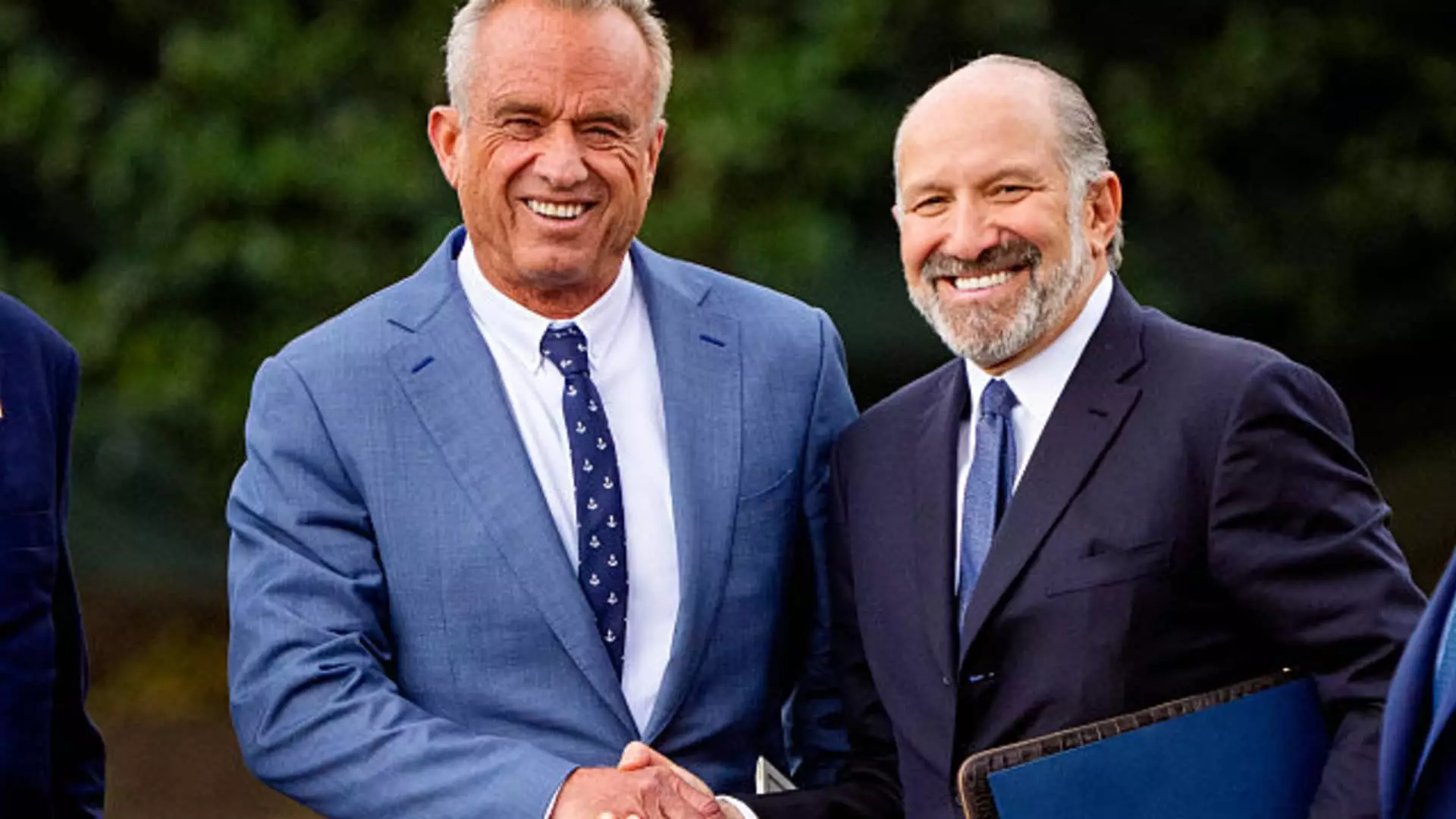The appointment of Robert F. Kennedy Jr. as the Secretary of Health and Human Services (HHS) has unleashed a maelstrom of criticism from public health experts and financial analysts alike. Armed with a longstanding reputation as an anti-vaccine advocate, Kennedy’s leadership is fraught with issues that threaten the very essence of public health in America. His presence at HHS not only compromises the agency’s integrity but also undermines public trust in vaccines—one of the most effective public health interventions of our time. In a world still grappling with the ramifications of the COVID-19 pandemic, vaccine skepticism fueled by conspiracy theories poses a serious danger.
Impact on Public Health Initiatives
Kennedy’s questionable views regarding vaccines have already begun to ripple through public health initiatives, as highlighted by the resignation of Peter Marks, the head of the FDA’s biologics division. This departure is not merely symbolic; it sends a stark message to any remaining advocates for science-based policymaking within HHS. By downplaying the necessity of critical vaccines like the MMR (measles, mumps, rubella) and promoting unsubstantiated treatments, Kennedy is effectively creating an environment ripe for disease resurgence. This is a dangerous game to play, especially when the stakes involve life and death. The political machinations surrounding him appear less about public health and more about fostering a populist agenda that thrives on misinformation.
The Consequences of Undermining Trust
Public trust in vaccines has already been fragile in recent years, with misinformation circulating rapidly through social media channels. By taking charge of HHS, Kennedy amplifies a narrative that could lead to catastrophic public health consequences. Critics stress that pushing out seasoned professionals like Marks, who are grounded in public health science, in favor of an anti-vaccine stance is not just an ill-advised move; it is a reckless endangerment of societal well-being. Unfortunately, Kennedy’s actions could reduce vaccination rates, allowing preventable diseases to reclaim a foothold in communities.
Financial Fallout and Market Reactions
The financial implications of Kennedy’s leadership aren’t insignificant. Following Marks’ resignation, shares of crucial vaccine manufacturers like Moderna and Novavax suffered substantial losses, dropping more than 8% each. While some may dismiss this as merely a stock market reaction, the stakes are far more profound than just dollar signs. As analysts from Cantor Fitzgerald note, the issues at play are much larger than market volatility; they tap into the very heart of public health policy and the governance of vital health agencies. Investors are keenly aware that a leader who promotes anti-science sentiments is likely to stifle innovation and undermine the restoration of public health programs.
The Folly of Amateurism in Health Policy
It is deeply troubling that the agency tasked with safeguarding public health is overseen by someone who lacks a comprehensive understanding of scientific reasoning. Kennedy’s dismissal of the difference between correlation and causation is alarming. Public health policies should be driven by rigorous scientific analysis, not amateurish conjectures that can mislead the populace. The suggestion that casual discussions about vitamin supplementation could replace established vaccination protocols is not just misguided; it’s dangerously naive.
The Call for Urgent Reevaluation
With compelling evidence suggesting that Kennedy’s presence at HHS poses a serious threat to public health, there is a clear call to the administration for a reassessment of his role. The National Institutes of Health, Centers for Disease Control and Prevention, and other health organizations depend on the credibility of their leaders to foster community trust. Allowing a figure steeped in conspiracy theories to steer public policy would indeed mark a troubling chapter in American health governance.
In a society that increasingly values scientific fact and integrity, is it too much to demand accountable leadership within HHS? Or will we allow the narrative of “freedom to choose” regarding vaccines to lead us down a perilous path? The time for a course correction is now—a collective effort to reject unsubstantiated claims and emphasize science-based policies is urgently needed to safeguard our nation’s health.

